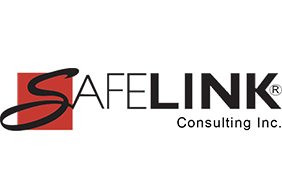The Pregnant Workers Fairness Act (PWFA) is a federal law aimed at safeguarding the rights of pregnant employees and individuals with childbirth-related medical conditions. Despite being signed during the busy winter holiday season and included in a comprehensive spending bill, the Pregnant Workers Fairness Act (PWFA) is now in effect and requires employers to make significant adjustments to their accommodation and leave practices to safeguard the rights of pregnant employees and individuals with childbirth-related medical conditions.
The Pregnant Workers Fairness Act (PWFA) essentially mandates that employers with 15 or more employees treat accommodation requests related to pregnancy, childbirth, or related medical conditions in the same manner as requests for accommodation related to disabilities under the Americans with Disabilities Act (ADA).
This Act became effective on June 27th and brings forth new requirements aimed at safeguarding the rights of pregnant employees and individuals with childbirth-related medical conditions. By fully comprehending and embracing these changes, employers can cultivate a work environment that prioritizes the well-being of their employees while still maintaining operational efficiency. Let's explore the key aspects of this Act.
Promoting Workplace Equality:
The PWFA empowers employers to take proactive steps in promoting workplace equality by eradicating discrimination against pregnant employees. By complying with this federal law, employers foster a culture of inclusivity and fairness where the needs of pregnant workers are valued and supported. Providing reasonable accommodations showcases employers' dedication to the well-being and success of their employees.
Navigating Reasonable Accommodations:
The PWFA requires employers to offer reasonable accommodations to pregnant employees and those with childbirth-related medical conditions. At first glance, this may seem overwhelming, but it actually provides a chance for employers to foster open dialogue and collaborative solutions within their organization. By engaging in an interactive process with the employee, employers can gain a better understanding of their needs and explore practical solutions that balance both business operations and employee well-being.
Benefits of Reasonable Accommodations:
Implementing reasonable accommodations not only ensures compliance with the law but also yields significant benefits for employers. By offering appropriate workplace adjustments, employers can retain valuable talent, enhance employee satisfaction, and cultivate loyalty and productivity. Accommodations such as flexible schedules, modified tasks, and suitable lactation spaces contribute to a positive work environment where employees can perform at their best.
Balancing Employer Concerns:
While the PWFA focuses on protecting the rights of pregnant employees, it acknowledges the legitimate concerns of employers. Employers are not expected to endure undue hardships or incur excessive costs when providing reasonable accommodations. The law recognizes that accommodations should be reasonable and should not pose a substantial burden on the employer's operations.
Employers have the ability to decline reasonable accommodation requests if they would create an excessive burden on their business operations, resulting in significant difficulty or expense. It is important to exercise caution and consult with legal counsel before denying an accommodation request on this basis, considering the potential risks involved.
Employers are encouraged to approach accommodation requests in a fair and thoughtful manner, considering the specific circumstances of each situation. Collaboration and flexibility are crucial in finding solutions that meet the needs of both the employee and the employer.
Existing and Newly Implemented Federal Laws:
You might be wondering how the Pregnant Workers Fairness Act (PWFA) differs from existing federal laws that already protect employees affected by pregnancy or childbirth. While there are indeed several federal laws in place that offer some level of protection, they do not provide the same comprehensive safeguards as the PWFA.
The Pregnancy Discrimination Act (PDA) prevents discrimination against pregnant individuals; however, it does not explicitly mandate employers to provide accommodations for pregnancy or pregnancy-related conditions. Instead, it simply requires employers to treat pregnant employees in the same manner as other employees who are similarly unable to work.
The ADA provides limited protection for pregnant employees. It does not classify pregnancy as a disability under the law, and accommodations are only mandated if the individual has a pregnancy-related disability.
The Family and Medical Leave Act (FMLA) guarantees that employees are entitled to take unpaid leave for pregnancy and childbirth, but it does not include a provision for accommodations.
The Providing Urgent Maternal Protections for Nursing Mothers (PUMP) Act passed at the same time as the PWFA but became effective on April 28, 2023. While the Affordable Care Act (ACA) already requires employers to provide reasonable time and a private space, other than a bathroom, for expressing breast milk, the PUMP Act takes it a step further. It extends these rights to all breastfeeding employees for the entire first year of their baby's life, no longer excluding most salaried employees. Additionally, any time spent expressing breast milk must be considered as "hours worked" if the employee is also performing their job duties.
Preparing for Compliance:
With the implementation of the PWFA, employers need to be well-informed and prepared to meet the new requirements. It is important to thoroughly review existing policies, procedures, and employee handbooks to ensure full compliance with all laws. Also, employers must effectively communicate the provisions of the PWFA to all employees and display the required notices in conspicuous locations throughout the workplace.
The PWFA does not override federal, state, or local laws that offer even greater protection for employees impacted by pregnancy, childbirth, or related medical conditions. Many states and cities have already implemented their own pregnancy accommodation laws, with 30 states and five cities requiring employers to provide some level of accommodations, including specific provisions for lactating employees. If your business operates in one of these locations, your current practices may already align with the PWFA, and minimal or no changes may be necessary.
If your business operates in a state where employers are not currently obligated to provide reasonable accommodations to pregnant or recently postpartum employees, it's time to take action. Even if your business already offers these protections due to a state or local law, or as part of a more generous policy, it's still essential to seize this opportunity to review and ensure compliance with your policies and practices.
Let's Sum it Up:
Employers must pay attention to the implications of this law, as it introduces new workplace requirements that may demand substantial adjustments to accommodation and leave practices. As the PWFA takes effect, employers have a unique opportunity to demonstrate their commitment to equality, helping to ensure that every employee has the necessary support to thrive both personally and professionally. By embracing the PWFA, employers have the opportunity to demonstrate their unwavering dedication to cultivating a work environment that is not only inclusive and supportive but also fosters a strong sense of loyalty among employees. This commitment to inclusivity and fairness not only attracts top talent but also bolsters the organization's overall reputation. By prioritizing the rights of pregnant employees, employers send a clear message that they value diversity, prioritize employee well-being, and are dedicated to providing equal opportunities for all.
What can SafeLink Consulting do for my business?
SafeLink Consulting addresses your business needs whether they are a basic quality system or safety program to an expanded quality system to improve good business practices or comprehensive safety plan. We provide customized programs specific to your business model. SafeLink Consulting offers your business the whole package on quality systems, safety programs, patient security and chairside services plus compliance with FDA, OSHA & HIPAA. Contact us.
Discover how Workplace Violence Prevention can help create a safe and secure work environment for your employees.
Learn more about what SafeLink Consulting can do to help your business with compliance services, including safety compliance, to meet OSHA training requirements and quality system consulting to meet FDA compliance.
Get notification when new regulatory compliance training courses are added plus upcoming events by subscribing to our email news.







Leave Comment